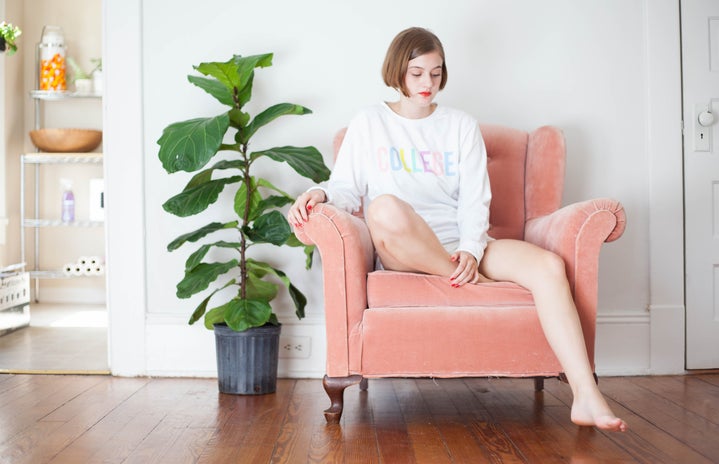All teenage girls have something in common: their physical insecurities. This phenomenon occurs all over the world. Their body types or ethnicities don’t matter when they’re faced with conventional beauty standards: a one-size fits all type of canon. We have a generation of young girls obsessing over the impossibility of perfection, their emotional states dependent on what society categorizes as beautiful. One would think it’s a normal phase within a woman’s life, given that it has become a collective experience. However, should this be considered a normal occurrence or is it a sign of something more serious?
Society is often perceived as a collective of unknown faces; an entity detached from ourselves. In reality, we completely forget society is formed by our families, friends, and people who are close to us. More importantly, we are part of the same society that perpetuates exclusion and establishes standards. Teenage girls are more susceptible to the rigid beauty standards imposed by society. These beauty standards are everywhere: in their homes, when family members, especially the women, suggest losing weight or applying more makeup. In their friend circle, girls share what’s trending and they are ruthless when they spot something they consider imperfect. They are in the minds of teenage boys who are so engrossed in the image of the perfect woman imposed by society, and that anything less than that image is considered “ugly” or unworthy.
The truth is, beauty standards are constantly changing with every year that passes. Society can go from praising a certain body type to hating it the minute something different comes along and becomes a trend. Tall and thin was what every teenage girl wanted to be for some time, and then being voluptuous and curvy dethroned that beauty standard. For a long time, the lack of representation of other ethnicities and skin colors made non-white, teenage girls wish they were white, blue-eyed, and blonde. Afros were seen as messy and unkempt, plus size women as undesirable, and curvy women as too grotesque.
The beauty standard right now is to have large breasts, a teeny tiny waist, and a prominent bosom with expressive eyes and big lips. If a woman has surgery, she is criticized for not being natural. If a woman is natural, she is criticized for being too “basic”. There is no winning. With all these changes and demands, teenage girls feel the constant need to morph themselves into what’s considered beautiful. If a teenage girl becomes comfortable with a certain part of her body and society suddenly dictates it’s an undesirable aspect, she will most likely spend her teenage years hating her body and wishing to change that particular aspect.
The media plagues teenage girls with images of impossible beauty standards. They see models like Kendall Jenner and Bella Hadid, influencers like Kylie Jenner, businesswomen like Kim Kardashian, and wonder why they don’t look like that. While there’s nothing wrong with plastic surgery, there’s something terrible about making girls all over the world believe you’re natural; that your beauty is achievable. All these women deny allegations of surgery when, in fact, they’ve done some things to look the way they do. Why not speak about the benefits of plastic surgery, how it can enhance your confidence, or talk about body positivity?
Even though we live in more progressive times, where society and the media are celebrating different body types and ethnicities, we still have a long way to go. We need to teach teenage girls to love themselves. We need to reinforce that there’s more than one kind of beauty. We need to address their insecurities as something that could potentially turn into something more serious, like depression, and not as part of a normal phase. There’s beauty in everything… Let’s not limit our possibilities.


